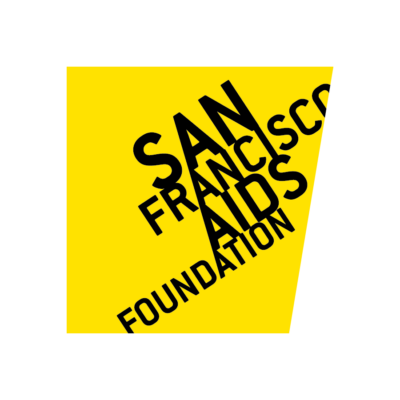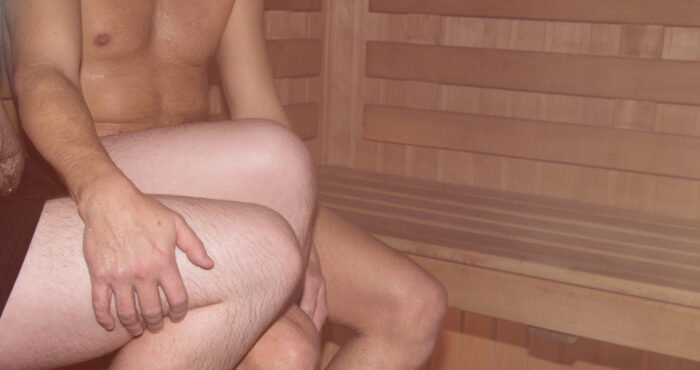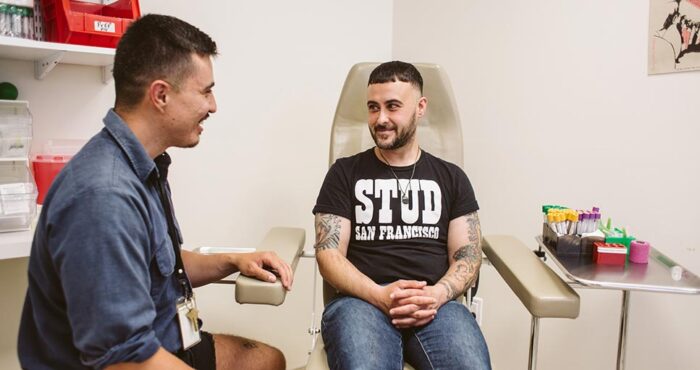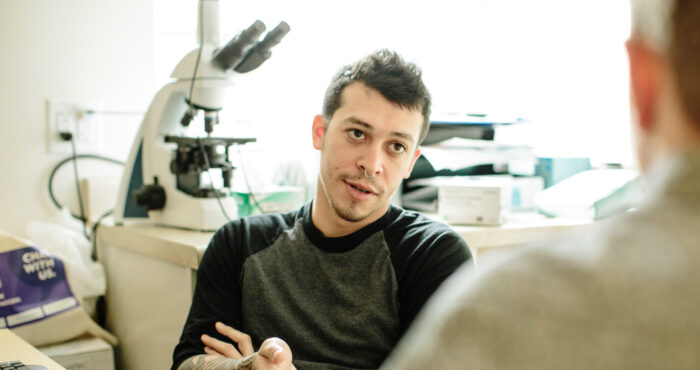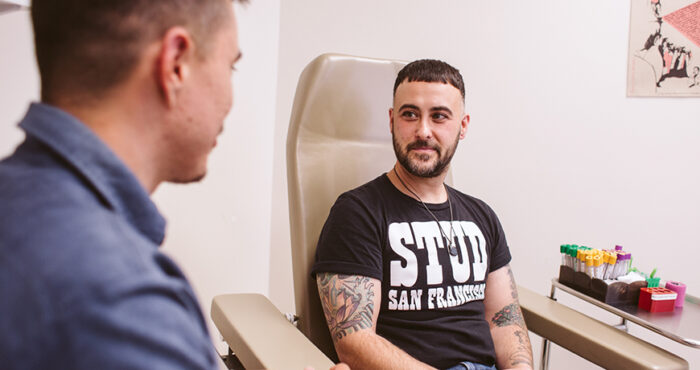Promising gonorrhea vaccine may prevent 40% of cases

Gonorrhea is a pesky (and sometimes dangerous) infection that is becoming more common in San Francisco and around the world, with rates of infection rising year-after-year. Perhaps you’ve experienced the pain, itching, or discharge that can accompany this common STI, or have worried about it after exposure from a partner. Wouldn’t it be freeing to never have to worry about gonorrhea ever again?
This is an idea that researchers are currently working toward, by testing a possible vaccine for gonorrhea. The vaccine is delivered as a shot in the arm, twice per year. Interestingly, the vaccine has already been approved by the FDA as a meningitis vaccine for young people.
Find out more about how to participate in the gonorrhea vaccine study: https://helpfighthiv.org/gonvax/
“Bacterial meningitis and gonorrhea infections are both caused by Neisseria bacteria,” said Hyman Scott, MD, from Bridge HIV and San Francisco AIDS Foundation. “The bacteria share a lot of similar structures, which is why the vaccine may work to prevent both types of infection.”
Two large observational studies have shown that the 4CMenB meningitis vaccine is associated with a reduced risk for gonorrhea infection.
In the first, CDC researchers compared health records of 16 – 23 year olds in New York City and Philadelphia–about 8,000 who had received the 4CMenB vaccine (half received one dose, and half had received two doses of the vaccine). Among the full sample of 110,000 people, there were about 18,000 gonorrhea infections. The researchers found that people who received both doses of the meningitis vaccine were far less likely to be diagnosed with a gonorrhea infection. Two doses of the vaccine were 40% protective against gonorrhea; one dose of the vaccine was 26% effective at preventing gonorrhea infection.
In a study from South Australia, researchers compared gonorrhea infection data and vaccination records to estimate the effectiveness of the 4CMenB vaccine against gonorrhea (people diagnosed with chlamydia were included as age-matched “controls”). The researchers estimated that two doses of the vaccine was 33% effective against gonorrhea.
Dr. Scott reinforced the need for additional medications and strategies to prevent gonorrhea.
“Gonorrhea sucks,” he said. “We want to prevent people from getting gonorrhea and all the complications that can come from it. Gonorrhea is treatable, but it’s becoming more and more resistant to treatments. So we’re increasing the amount of antibiotics that we have to give to people to treat infections–there is concern of expanding ‘resistance’ of infections to our available medications. We might get to a scenario where we have infections that we really can’t treat. So if we have additional preventative methods, such as a vaccine, there will be less gonorrhea and less opportunity for resistance to develop. It would be a win-win.”
Bridge HIV in San Francisco is currently enrolling participants in the Gonorrhea Vaccine Study. The study is randomized controlled with a placebo group and a group of people who will receive the vaccine. The study is open to people between the ages of 18 and 50, both HIV-negative and HIV-positive, who are sexually active. The study is also open to people who are using DoxyPEP. For more information, visit: https://helpfighthiv.org/gonvax/






